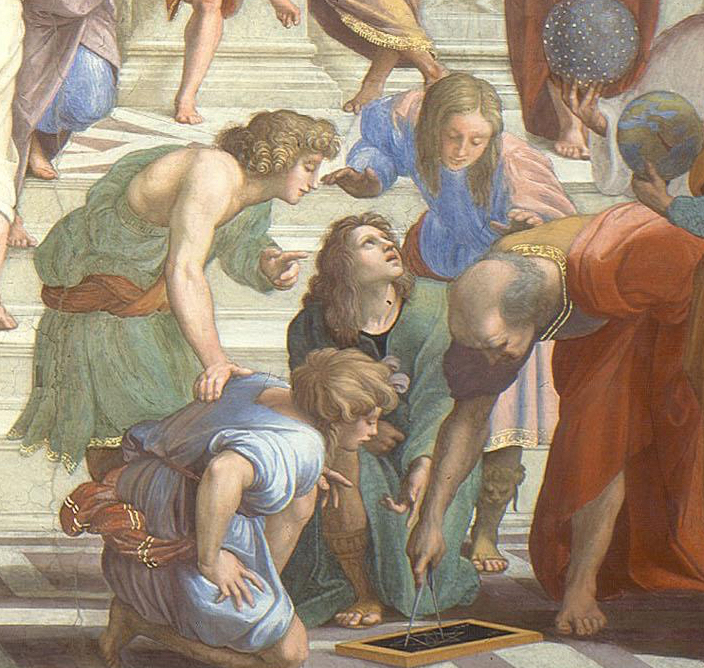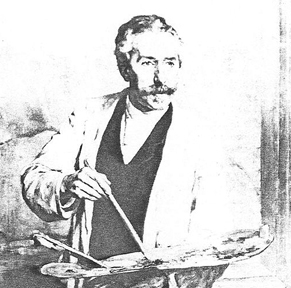Charles Hermans, 1839-1924
Charles Hermans, A l'aube (At Dawn)
(Click the image for a lightbox view)
“I tried to be as sincere as possible, while avoiding being both too sentimental and too realistic. The workers of the foreground, refreshed, peacefully go to work in the morning, while the dissolute, dressed in black, stagger noisily out of the golden pleasure-shacks where they spent the night. On one carnival day, I went out before sunrise to watch the parade of my actors. I have reproduced the scene completely as she made an impression on my imagination, contenting myself to stay as simple as possible.
“It was claimed that my painting had a socialist reach. That is a mistake. I never thought of ennobling the worker by showing the decline of debauched.” — Charles Hermans
Hermans may not have chosen to elevate the workers by contrast with the extravagant living of the party-goers. But no one seeing this painting can fail to remark on the distinction between the two life styles, and to decide which one evinces superior social values. Even Hermans himself refers to the inebriated revelers as “dissolute” and “debauched.”
(Click the image for a lightbox view)
(Click the image for a lightbox view)







